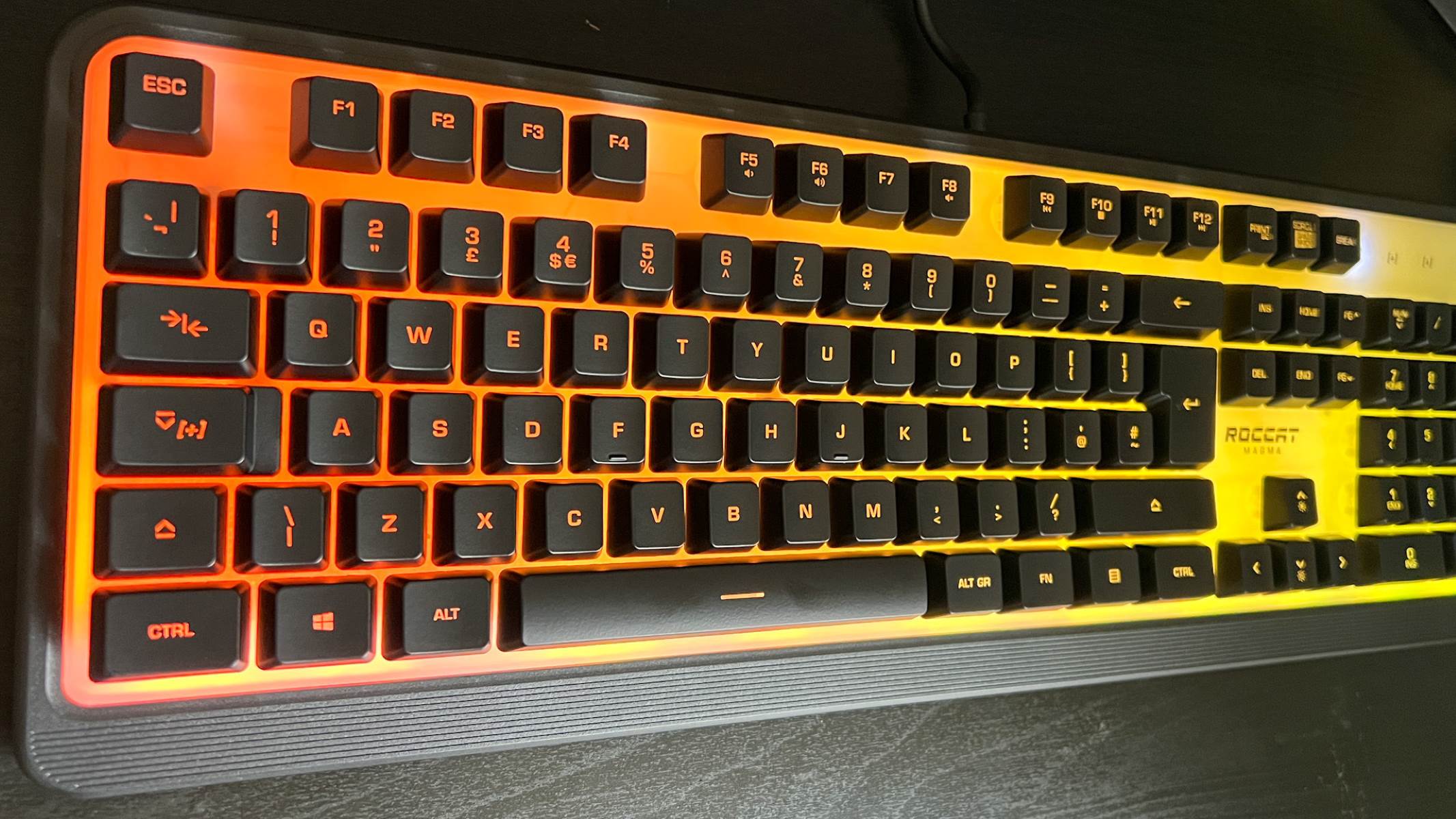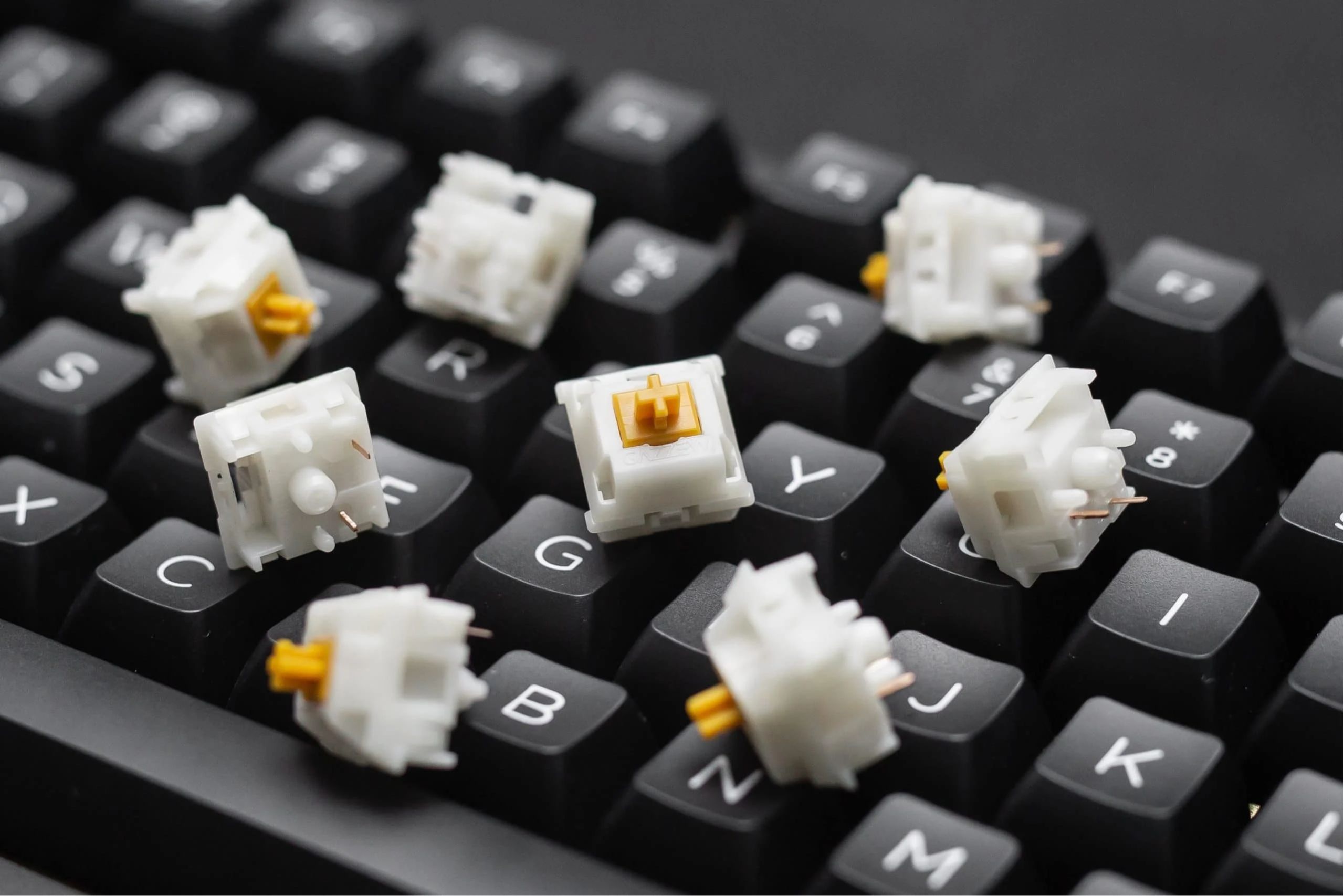Introduction
Understanding the Distinction Between Mechanical and Membrane Keyboards
When it comes to choosing the perfect keyboard for your computer, the decision often boils down to selecting between a mechanical and a membrane keyboard. Each type offers distinct features and advantages, catering to different preferences and usage scenarios. While mechanical keyboards are renowned for their tactile feedback and durability, membrane keyboards are favored for their quiet operation and affordability. However, the growing demand for a compromise between the two has led to the development of mechanical keyboards that mimic the feel of membrane keyboards.
In this article, we will delve into the characteristics of both mechanical and membrane keyboards, shedding light on their unique traits and functionalities. By understanding the differences between these two keyboard types, you can make an informed decision when choosing a keyboard that aligns with your specific needs and preferences. Additionally, we will explore a selection of mechanical keyboards that offer a typing experience akin to that of membrane keyboards, providing a valuable resource for individuals seeking the best of both worlds in their keyboarding experience. Let's embark on this exploration to unravel the intricacies of mechanical and membrane keyboards, ultimately discovering the ideal keyboard that feels just right for you.
What is a Mechanical Keyboard?
A mechanical keyboard is a type of keyboard that utilizes individual mechanical switches for each key. These switches are composed of several moving parts, including a spring and a stem, which register keystrokes when pressed. The construction of mechanical switches results in a distinct tactile feel and audible click, providing users with responsive feedback during typing. The design of mechanical keyboards allows for customizable actuation points and key travel, catering to the specific preferences of users in terms of typing experience.
One of the key features of mechanical keyboards is their durability. The robust construction of mechanical switches enables them to withstand a significantly higher number of keystrokes compared to membrane keyboards, making them a long-lasting investment for avid typists and gamers. Additionally, the replaceable nature of individual switches allows for easy maintenance and customization, empowering users to tailor their typing experience to suit their unique requirements.
Furthermore, mechanical keyboards are renowned for their versatility, offering a diverse range of switch options to accommodate different typing styles and preferences. Whether users prefer a tactile, clicky, or linear switch, mechanical keyboards provide a plethora of choices to cater to individual preferences for key feel and sound. This versatility has contributed to the widespread popularity of mechanical keyboards among professionals, enthusiasts, and gamers alike.
What is a Membrane Keyboard?
A membrane keyboard is a type of keyboard that features a uniform, flat structure with keys that are linked to the keyboard’s circuitry through a flexible membrane. When a key is pressed, the membrane underneath it makes contact with the circuit, registering the keystroke. This design results in a relatively quiet typing experience, making membrane keyboards an ideal choice for environments where noise reduction is essential, such as offices or shared workspaces.
One of the defining characteristics of membrane keyboards is their affordability. Due to their simplified construction and cost-effective materials, membrane keyboards are often priced more competitively than their mechanical counterparts, making them an accessible option for budget-conscious consumers. This affordability has contributed to the widespread adoption of membrane keyboards in various settings, ranging from office environments to home computing setups.
Additionally, membrane keyboards are valued for their low-profile design and lightweight build, offering a compact and portable typing solution for individuals on the go. The absence of individual mechanical switches results in a sleek and minimalist appearance, making membrane keyboards a popular choice for users seeking a streamlined and space-efficient keyboarding experience.
While membrane keyboards are recognized for their quiet operation and cost-effectiveness, they may lack the tactile feedback and durability associated with mechanical keyboards. The absence of distinct mechanical switches can lead to a less pronounced key feel and limited customization options, which may impact the typing experience for users accustomed to the tactile responsiveness of mechanical keyboards.
Characteristics of Membrane Keyboards
Membrane keyboards are distinguished by several key characteristics that set them apart from other types of keyboards, such as mechanical keyboards. Understanding these traits is essential for individuals seeking a comprehensive overview of membrane keyboards and their unique functionalities.
- Affordability: Membrane keyboards are often priced more competitively than mechanical keyboards, making them an accessible option for budget-conscious consumers. This affordability has contributed to the widespread adoption of membrane keyboards in various settings, including offices, schools, and home environments.
- Quiet Operation: The membrane design of these keyboards results in a relatively quiet typing experience, making them well-suited for environments where noise reduction is essential, such as shared workspaces or quiet study areas.
- Low Profile and Lightweight: Membrane keyboards typically feature a low-profile design and lightweight build, offering a compact and portable typing solution for individuals on the go. The absence of individual mechanical switches contributes to the sleek and minimalist appearance of membrane keyboards.
- Minimal Tactile Feedback: Due to the absence of distinct mechanical switches, membrane keyboards may offer limited tactile feedback compared to mechanical keyboards. This characteristic can impact the typing experience for users accustomed to the tactile responsiveness of mechanical switches.
- Limited Customization Options: Membrane keyboards may provide fewer customization options for key feel and actuation compared to mechanical keyboards. The uniform membrane structure limits the ability to adjust key travel and actuation points, which may influence the typing experience for users seeking personalized settings.
By recognizing these key characteristics, individuals can gain a deeper understanding of the unique attributes that define membrane keyboards and their suitability for specific usage scenarios and user preferences.
Characteristics of Mechanical Keyboards
Mechanical keyboards are renowned for their distinctive characteristics, setting them apart from membrane keyboards and contributing to their widespread appeal among users with diverse typing preferences and requirements. Understanding these key traits is essential for individuals seeking a comprehensive overview of mechanical keyboards and their unique functionalities.
- Tactile Feedback and Audible Click: One of the hallmark features of mechanical keyboards is their tactile feedback and audible click, providing users with responsive and satisfying keystroke feedback. This characteristic enhances the typing experience and allows for precise key actuation.
- Durability and Longevity: Mechanical keyboards are prized for their durability, capable of withstanding a significantly higher number of keystrokes compared to membrane keyboards. The robust construction of individual mechanical switches contributes to the longevity of mechanical keyboards, making them a reliable investment for prolonged use.
- Versatility and Customization: Mechanical keyboards offer a diverse range of switch options, catering to different typing styles and preferences. Whether users favor a tactile, clicky, or linear switch, mechanical keyboards provide a plethora of choices to accommodate individual preferences for key feel and sound. Additionally, the customizable actuation points and key travel enable users to tailor their typing experience to suit their unique requirements.
- Enhanced Typing Experience: The tactile and responsive nature of mechanical switches enhances the overall typing experience, allowing for improved accuracy and comfort during prolonged typing sessions. This characteristic makes mechanical keyboards a preferred choice for professionals, gamers, and enthusiasts seeking an elevated typing experience.
- Replaceable and Maintainable Switches: The individual nature of mechanical switches allows for easy maintenance and customization. Users can replace switches as needed, enabling seamless maintenance and the freedom to personalize their keyboard’s performance and feel.
By recognizing these distinctive characteristics, individuals can gain a deeper appreciation for the unique attributes that define mechanical keyboards and their suitability for a wide range of applications, from professional work environments to gaming and personal computing.
Mechanical Keyboards that Feel Like Membrane
While mechanical keyboards are celebrated for their tactile feedback and durability, some users may prefer a typing experience that closely resembles the feel of membrane keyboards. In response to this demand, several mechanical keyboards have been designed to emulate the characteristics of membrane keyboards, offering a quieter and softer typing experience while retaining the benefits of mechanical switches.
These hybrid mechanical keyboards aim to bridge the gap between the distinct typing experiences of mechanical and membrane keyboards, catering to users who value a quieter and less pronounced key feel without compromising the advantages of mechanical switches. By incorporating specialized switches and dampening mechanisms, these mechanical keyboards deliver a typing experience that closely mirrors the characteristics of membrane keyboards, providing a compelling alternative for individuals seeking a more subdued and familiar typing sensation.
Key features of mechanical keyboards that feel like membrane include:
- Quieter Operation: These keyboards are designed to produce less audible noise during typing, creating a quieter and more discreet typing environment compared to traditional mechanical keyboards.
- Softer Keystrokes: The switches utilized in these keyboards are engineered to offer a softer and less pronounced key feel, akin to the cushioned keystrokes associated with membrane keyboards.
- Subdued Tactile Feedback: While retaining the benefits of mechanical switches, such as durability and customizable actuation points, these keyboards provide a more subdued tactile feedback, appealing to users accustomed to the gentler key response of membrane keyboards.
- Enhanced Comfort: By emulating the softer and quieter characteristics of membrane keyboards, these mechanical keyboards prioritize user comfort and minimize the impact of keystroke noise, making them suitable for shared workspaces and environments where noise reduction is essential.
By offering a compromise between the distinct typing experiences of mechanical and membrane keyboards, these specialized mechanical keyboards provide users with a versatile and tailored typing solution that harmonizes the best aspects of both keyboard types.
Exploring the Ideal Keyboarding Experience
As we conclude our exploration of mechanical and membrane keyboards, it becomes evident that both keyboard types offer unique characteristics and functionalities, catering to diverse user preferences and usage scenarios. The tactile feedback, durability, and versatility of mechanical keyboards make them a popular choice among professionals, enthusiasts, and gamers seeking an elevated typing experience. On the other hand, membrane keyboards are valued for their affordability, quiet operation, and low-profile design, making them suitable for various environments and budget-conscious consumers.
Furthermore, the emergence of mechanical keyboards that emulate the feel of membrane keyboards introduces a compelling middle ground, providing users with a quieter and softer typing experience while retaining the advantages of mechanical switches. This innovation reflects the industry’s responsiveness to user preferences, offering a versatile range of keyboard options that accommodate varying typing styles and environmental considerations.
Ultimately, the ideal keyboarding experience is a subjective concept, influenced by individual preferences, ergonomic considerations, and the specific demands of the user’s computing environment. Whether one gravitates towards the tactile precision of mechanical switches or the subdued keystrokes of membrane keyboards, the availability of diverse keyboard options empowers users to select a keyboard that harmonizes with their unique typing style and environmental requirements.
By understanding the characteristics and distinctions of mechanical and membrane keyboards, individuals can make informed decisions when selecting a keyboard that aligns with their preferences and enhances their overall typing experience. The evolving landscape of keyboard technology continues to offer innovative solutions, ensuring that users have access to a wide array of keyboards that cater to their diverse needs and preferences.
As technology advances and user preferences evolve, the keyboard market is likely to witness further refinements and innovations, providing users with an ever-expanding selection of keyboards designed to deliver optimal comfort, performance, and user satisfaction. Whether it’s the robust tactility of mechanical switches or the understated elegance of membrane keyboards, the quest for the perfect keyboarding experience continues to inspire ingenuity and creativity in the realm of keyboard design and technology.

























